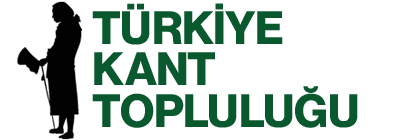Philosophy Today and Tomorrow XVII

DEÜ Department of Philosophy and Turkey Kant Society Event
Dokuz Eylül University Department of Philosophy and Turkey Kant Society are jointly organising an online event. The event link information is as follows:
ID:891 1004 0225
Password: 764190
Everyone is welcome! The language of the event is English and the talks will not be translated. Please write your name and surname on your Zoom account before participating the event.
Here is some information about speakers and abstracts:
Sorin Baiasu (Bio): Sorin Baiasu is Professor of Philosophy at Keele University and Director of the Keele-Oxford-St Andrews Kantian (KOSAK) Research Centre. He published one monograph, five edited collections and over thirty studies mainly in ethics, metaphysics and political philosophy. His research was funded, among others, by the British Academy, the European Commission and the European Research Council. Currently he is writing a monograph entitled: Kantian Justice: A Responsibility-enhancing Desert-sensitive Theory.
THE POSSIBILITY OF KANTIAN ARMCHAIR KNOWLEDGE (Abstract):
In the Critique of Pure Reason, in the second division of Transcendental Logic (namely, Transcendental Dialectic), Kant aims to uncover the illusion of transcendental judgements and to keep it from deceiving us; he notes, however, that Transcendental Dialectic cannot make that illusion disappear and warns us that it will hoodwink and thrust reason incessantly into momentary aberrations, which we will then need to remove. (A297-8/B354-5)[1] In his masterful essay, “Armchair Knowledge: Some Kantian Reflections”, A.W. Moore claims thatKant lapses into contradiction as a result of invoking transcendental idealism as a solution to the puzzle of what Moore calls“armchair knowledge”.[2] Moore talks about “the incoherence of transcendental idealism” and, through a discussion which includes the question of whether different subjects possess different categories, offers an account of armchair knowledge without transcendental idealism. He suggests we should abandon the Kantian a priori intuitions and, with them, also Kant’s synthetic a priori judgements. In this talk, I will examine some of the problems identified by Moore in Kant’s account, with particular focus on the contradiction he thinks Kant commits as a result of being forced to accede to synthetic armchair knowledge of how things are in themselves. I discuss Moore’s notion of armchair knowledge, the distinction between analytic and synthetic armchair knowledge, and the difficulty – exegetical or philosophical – of attributing to Kant the view either that there is only one set of categories or that different subjects have different sets of categories.I do not aim to show that there is no internal consistency in Kant’s thought or that Moore (perhaps continuing in this way Kant’s project of uncovering the deceptions of transcendental judgements) might not be right to point to potential problems in Kant’s texts; my claim is rather that there are resources in the Kantian corpus to show that Kantian armchair knowledge is possible and transcendental idealism, coherent.[3]
References
Baiasu, S. (2016) “Is Kant’s Metaphysics Profoundly Unsatisfactory? Critical Discussion of A. W. Moore’s Critique of Kant”, in Kantian Review. 21(3): 465-81.
Kant, I. (1996[1781/1787]) Critique of Pure Reason. Tr. W. S. Pluhar. Indianapolis, IN: Hackett.
Moore, A. W. (2016) “Reply to Sorin Baiasu and Edward Kanterian”, in Kantian Review 21(3): 495-506.
___________ (Forthcoming) “Armchair Knowledge: Some Kantian Reflections”, in Public Reason.
[1] I am mainly relying on Werner S. Pluhar’s translation, inthe 1996 unified edition of the first Critique.
[2] Moore’s paper is the text of his 2019 ‘Rousseau’ Annual Lecture, and it is forthcoming in a special issue of the journal Public Reason. The ‘Rousseau’ Annual Lecture and Conference take place every year at Keele University, either in November or in the March of the following year. The 2019 ‘Rousseau’ events were due to take place in March 2020 and were rescheduled as virtual events for July 2021 due to the Covid-19 pandemic.
[3] In his paper, Moore refers to our previous exchange (2016) as a stimulus for part of the discussion.
Sebastian Orlander (Bio): Sebastian Orlander is a PhD student at Keele University (UK), currently finishing on a project on Kant’s notion of the world and its systematic function in the three Critiques. Sebastian studied at Miami University of Ohio (BA) and at the University of Memphis (MA) before being admitted for a PhD Studentship at Keele through the APRA Foundation Berlin Graduate Teaching Studentship. Apart from working on Kant, Sebastian also is interested in the History of Early Modern Philosophy more generally (particularly Spinoza and Hume), as well as early 20th century philosophy (phenomenology).
IS KANT A FICTIONALIST? (Abstract):
In this paper, I want to examine some textual passages regarding the regulative use of the Ideas of Reason, located in the section ‘On the final aim of the natural dialectic of human reason,’ (A669/B697 – A704/B732) using the interpretive frame of Ideas of Reason as a specific kind of fiction. While first articulated in Hans Vaihinger’s work (cf. Die Philosophie des Als Ob. 1922), the approach of treating Kant’s ideas and other relevant notions that Kant uses to refer to the supersensible is often set aside as a sort of curio: plausible at first glance but not worth deeper reflection, due to some glaring problems. However, I believe that there are good reasons to entertain the ‘fictionalist’ reading of Kant on systematic grounds, particularly relating to Kant’s use of analogy to clarify how we can speak meaningfully about the supersensible, even without being able to justify any knowledge claims about it. To do this, I will first lay out some considerations about the notion of fiction that is at stake to perhaps dispel some dismissive reactions. In particular, I want to lay out a sense of fiction that avoids the involvement of pretense or self-deception, which may be what conditions the initial dismissive attitude of some, while also pointing out the myriad ways in which we often engage in fiction without this having adverse practical consequences. Finally, I want to suggest possible ways in which one can apply this interpretive framework to help clarify problematic passages from the Kantian corpus.

